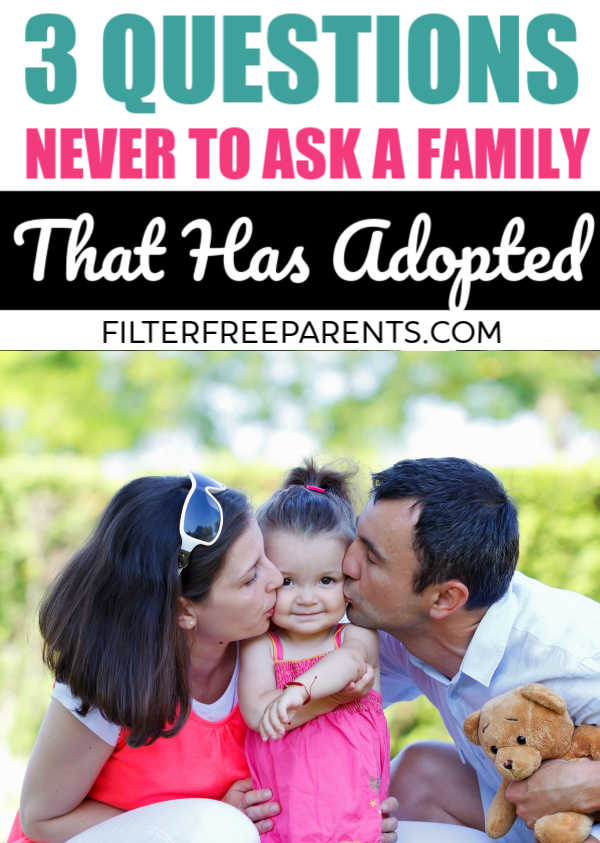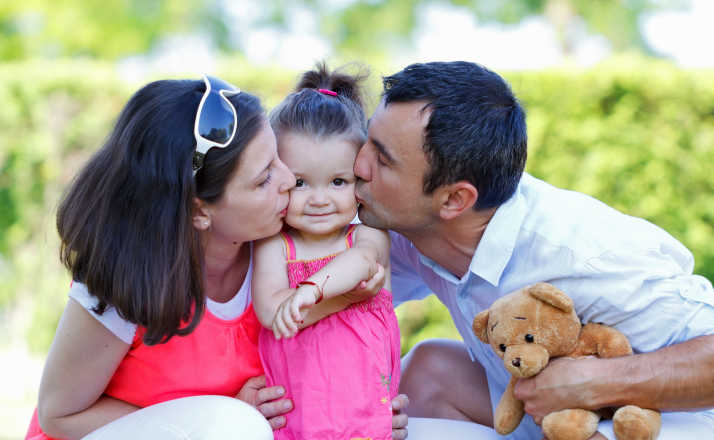We’ve adopted twice and are in the middle of that long and crazy process once again. And while most people are kind, I’d like to talk about some things that I suggest not be said, under any circumstances to a family that has adopted.
After all, no one likes an awkward conversation, so here are some tips to help avoid that embarrassing situation. Consider this a public service announcement and don’t mention it, you’re welcome.

Don’t ask about our fertility, in any way whatsoever
Yes, this actually happened. Isn’t humanity wonderful? Fortunately for me, but not so much for my husband, this impertinent topic of conversation was broached by a co-worker. Now, allow me to address the many problems with this incident. First, if we were going to discuss such a sensitive topic as this, it would not be with a casual co-worker.
Sorry, but that kind of topic is reserved for close family and friends.
Second, that topic is probably one of the most personal and hard things to talk about with anyone, and it should not be brought up so flippantly and casually. Please people, think before words come out of your mouth.
Lastly, and for me personally this is the most important, that question assumes that we adopted only because we may have been dealing with fertility issues.
It assumes that our kids, and any adopted kids for that matter, are the used car option of the child world.
We really wanted and preferred option A but couldn’t have that, so we begrudgingly settled for option B. No, that’s not even a little bit true. There are so many good reasons to consider adopting and none of them have to do with settling because you can’t give birth to children. Please, give our kids and us more dignity than that.
Don’t question our choice of adoption methods
Now, I have no problem with someone asking us why we picked one route over another, as a matter of genuine interest or from a desire to learn about or compare the adoption process.
My family and I are always thankful for thoughtful and considerate questions.
In fact, I wrote an article on my blog, fully detailing why our family chose to adopt internationally instead of domestically.
So I obviously have no problem explaining our reasons.
However, what I do have an issue with is when someone asks us why we did this instead of that, with a clear or implicit indication that we should have picked a different choice.
When someone makes this comparison, they are essentially elevating one group of kids over another, based only on their geographical location.

They are saying that kids in a certain place are more deserving of a loving, permanent family than others.
If you really are that concerned about the many children in the foster system (as you should be), then why don’t you consider doing something about it yourself and begin the adoption process, instead of criticizing our choice?
Don’t use the phrase “your own” and absolutely not in earshot of my kids
Allow me to explain, I am referring to those wonderfully respectful statements like “when are you going to have one of your own” or “I thought she was your own, she looks so much like you.”
This latter rendition was said in the hearing of my daughter, no less. Oh, how I wish I was making that up.
Now, I know what is meant by those words, mainly that I had not birthed the child under discussion. But that fact in no conceivable way makes them less my own! It does not make them only partially or temporarily mine, like getting a book on loan from a library or borrowing something from a friend.
Do you think I’m going to return them at some point? Now, I understand, slips of the tongue happen, I get that, believe me. But at the very least, be aware of who is around you.
If the kid(s) in question are nearby, don’t say things that might be overheard by them. I mean, this really should be obvious.
Thankfully, in this case, my daughter was happily engaged in the play area of the restaurant and was not paying attention. This isn’t the case anymore. She is older now and is always listening to everything and will bring up what she heard at the most annoying times.
So, let’s all try to think about what we’re saying and who we’re saying it to, can we all agree on that?
Hopefully, these tips on topics to avoid have been helpful. Now, just to be fair, our family has had many more thoughtful and considerate questions put to us than terrible ones.










